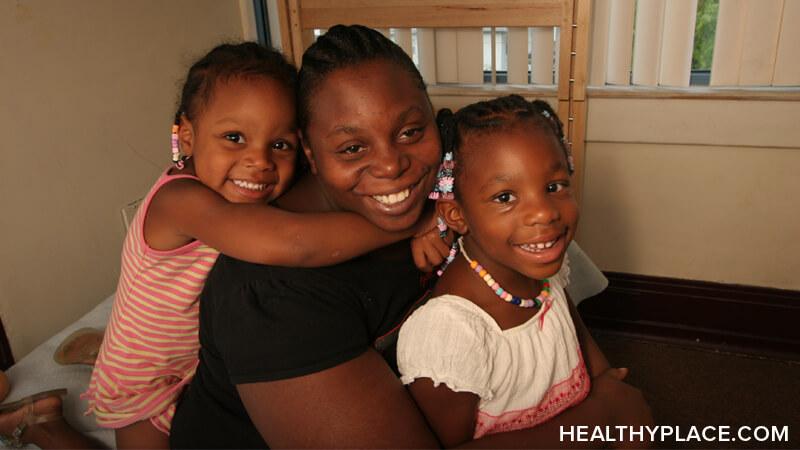How Postpartum Depression Made Me a Better Parent

When one characteristic of postpartum depression is guilt, how do you become a better parent? When your house is messy because you just don't have the energy to clean, you feel guilty. When your first reaction to your child's cries is anger instead of loving concern, you feel guilty. When you love your child but hate being a parent because of your postpartum depression, you feel guilty. But there's good news. I found that having postpartum depression also gave me advantages as a parent.
Why I'm a Better Parent Due to Postpartum Depression
Having More Empathy
While I'm tenderhearted, I'm also oblivious. I am apt to forget birthdays or my to-do list. It was easy for me to discount my daughter's emotions because I couldn't relate to them. Once I developed postpartum, however, I learned to empathize with what she was experiencing. She didn't have to have a reason anymore to be upset. That shift made me a more responsive parent, and it would never have happened without postpartum depression.
Taking Responsibility for My Health
After waiting several months for my postpartum depression to disappear (it didn't), I realized I needed to seek treatment. I found that making adjustments to my diet helped ease my postpartum depression symptoms. Exercising helped me feel better. Counseling was a huge part of my treatment, as well as a few months of medication.
The biggest change was realizing that I needed to take responsibility for my physical and mental health. Postpartum wasn't my fault, but that didn't mean I could ignore it. As my children grow, I can teach them to be active participants in their own health. They have to pay attention to their bodies and respond accordingly. They don't have to wait until a crisis hits to own their health.
Asking for Help
I want to raise independent, well-adjusted children, but part of being well-adjusted is realizing that everyone needs help sometimes. It can be uncomfortable to accept help, or worse, ask for help, but it's necessary from time to time. During the worst parts of postpartum, I did not ask others for help. That was a big mistake. As time went on, however, I learned to accept help when it came. I even learned to ask others for help. If I needed a babysitter so I could just drive around or go to the store without children, I asked someone. If I needed my husband to pick up dinner so I didn't have to cook, I asked him.
Teaching my children to ask for help when they need it will serve them well. It's a balance. I don't want them to feel entitled, but I want them to be humble enough to ask for help when they need it. I have postpartum depression to thank for helping me find that balance.
The next time you feel that guilt coming through, remind yourself that you will be a better parent in the long run for having fought and won this battle.
APA Reference
Epperson, K.
(2021, March 11). How Postpartum Depression Made Me a Better Parent, HealthyPlace. Retrieved
on 2026, March 4 from https://www.healthyplace.com/blogs/copingwithdepression/2021/3/how-postpartum-depression-made-me-a-better-parent
